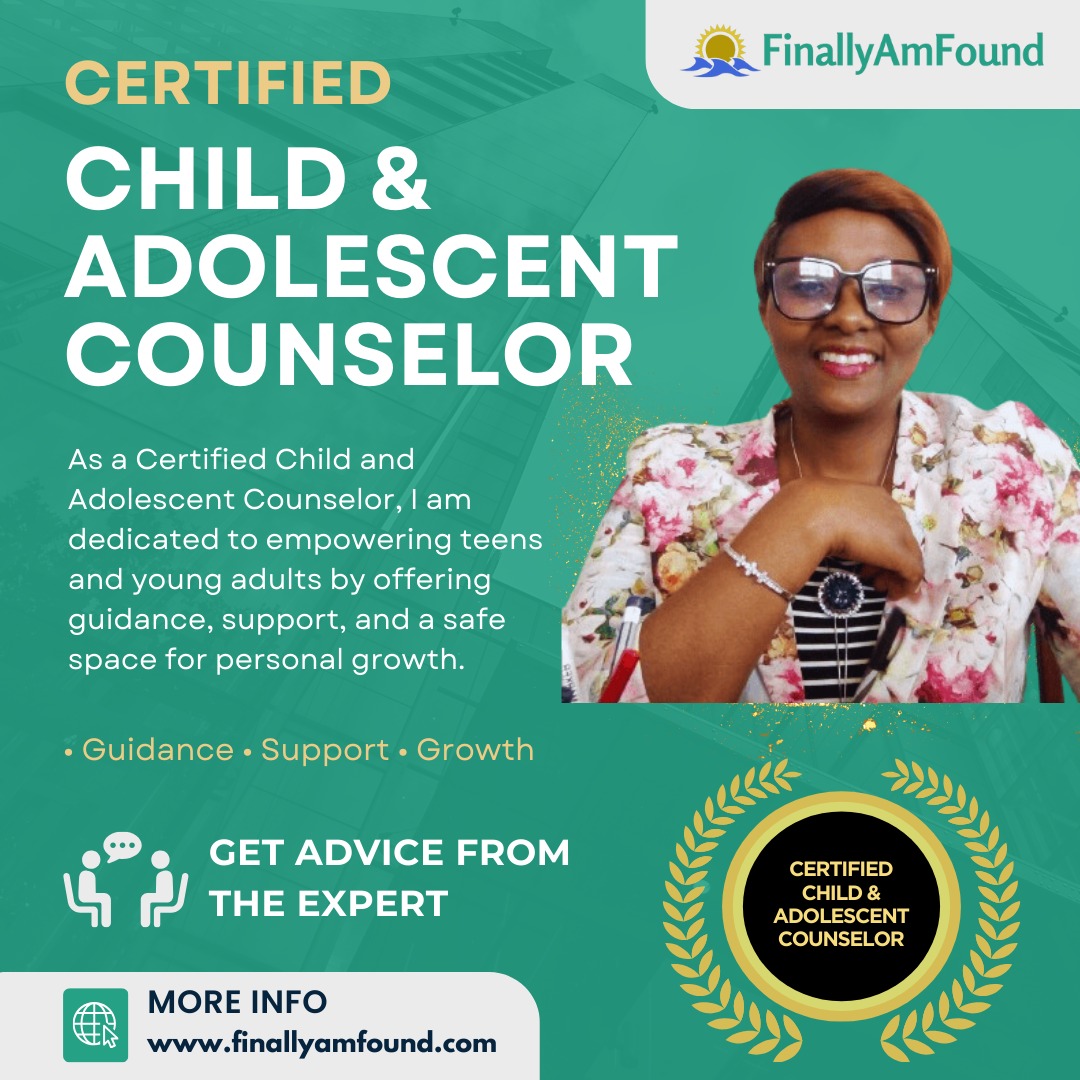The Impact of Father’s Absence
The absence of a biological father does not necessarily mean a lack of fatherly influence or guidance. However, if classified as a disease, the absence of a biological paternal parent would be a national epidemic worthy of attention and emergency response. This exploration delves into the family dynamics that foster resilience and mitigate the negative consequences of growing up without a father. Resilience is the process and capacity of leveraging resources to overcome challenges and difficult times. Key factors include maternal optimism, social and community support, spirituality, and faith. Additionally, it is important to explore other contributing factors to resilience among individuals who were raised in ‘fatherless homes,’ influenced by personal attributes such as adaptability, self-efficacy, and emotional regulation.
Emotional Challenges and the Journey to Overcoming Them
Growing up without a father can be a challenging and emotional experience for many young people. The absence of a father figure can lead to feelings of abandonment, low self-esteem, and uncertainty about the future. However, it’s essential to remember that being fatherless does not define your worth, potential, or destiny. In this article, we explore the struggles and triumphs of being ‘fatherless’ and offer a message of hope and encouragement to young people who may be navigating this journey.
A Message to the Fatherless
To all the young people growing up without a father figure, know that you are not defined by your circumstances. You are strong, capable, and deserving of love, support, and success. Here are a few things to remember, son/daughter:
- You are not alone. Many people care about you and want to support you on your journey.
- You are worthy of love and respect, regardless of your family situation.
- You have the power to create the life you want and achieve your goals.
- You are not a victim of your circumstances; you are a survivor and a thriver.
- Whatever happened, happened. You are not the cause, nor is it your fault. Never blame yourself.
- Be mindful that each individual on Earth faces their own set of adversities, which they have not chosen. Despite this, they work diligently to enhance their quality of life. It is imperative that you adopt a similar approach.
- Don’t buy into the stereotypes and misconceptions surrounding fatherlessness but work on yourself.
- Break the cycle.
- Believe that God cares and loves you more than a father would; you are His own, His loving child. Trust Him, and you will never miss a step.
Reasons for Father’s Absence
The absence of a father in a child’s life can be due to a variety of reasons, including:
- Absence due to Death: The father may pass away, leaving the mother to raise the child on her own.
- Separation or Divorce: The parents may separate or divorce, and the father may not be actively involved in the child’s life.
- Infidelity or Relationship Breakdown: The father may be absent due to an extramarital affair or relationship breakdown, leading to the child not having a consistent male figure in their life.
- Imprisonment or Incarceration: The father may be incarcerated, making it impossible for him to be actively involved in the child’s life.
- Military or Work-related Absence: Fathers may be away for extended periods due to military deployment or work-related assignments, leaving the child to grow up without their physical presence.
- Adoption: In some cases, a child may be adopted, and their biological father may not be involved in their life.
- Father’s Substance Abuse or Mental Health Issues: Fathers may be absent or neglectful due to struggles with substance abuse or mental health issues, leading to an inconsistent or unstable environment for the child.
- Immigration or Geographic Separation: Families may be separated due to immigration or other geographical constraints, leading to a physical absence of the father figure.
- Neglect or Abandonment: In some unfortunate cases, the father may choose to neglect or abandon his family, leading to an emotional or physical absence.
- Single Parent by Choice: Some mothers may choose to become pregnant or adopt without the intention of raising the child with a male partner or biological father.
- Death before the Child was Born: The father may have passed away before the child was born, making it impossible for them to have a biological father figure in their life.
- Poverty: Economic hardship can lead to migration, unemployment, or the inability to provide for a family, resulting in absent fathers.
- Polygamy: While practiced in some cultures, it can sometimes lead to divided attention and reduced involvement from fathers.
Emotional Struggles of Growing Up Without a Father
Growing up without a biological father can lead to a range of emotions and challenges. Some common struggles include they are worth noting so that you know what you need to work on and know that you can make obstacles your steps to victory:
Longing and Unanswered Questions
You may often experience a deep longing for a paternal presence. You may wonder about your father’s identity, the reasons for his absence, and what life would have been like with him around. Unanswered questions can create emotional turmoil, especially during significant life milestones.
Identity Struggles
A father plays a crucial role in shaping a child’s identity. Without that influence, young people may grapple with questions like “Who am I?” and “Where do I belong?” They might seek validation and affirmation from other sources, leading to vulnerability to self-doubt.
Trust Issues
Fatherlessness can erode trust in authority figures or male role models. The absence of a reliable father figure can make it challenging to trust others, impacting personal relationships, friendships, and even professional interactions.
Self-Worth and Self-Image
The lack of a father’s affirmation can affect self-worth. You may struggle with feelings of inadequacy or unworthiness, impacting your self-esteem and authentic self. Developing a healthy self-image becomes more challenging without positive paternal influence.
Emotional Breakdown
Growing up without a father can lead to intense emotional distress, often accompanied by feelings of overwhelm, helplessness, anger, confusion, and an inability to cope. These breakdowns can manifest as panic attacks, uncontrollable crying, and a sense of being emotionally paralyzed, making it difficult to move forward or address a situation.
Feeling Abandoned or Unloved
Fatherlessness can evoke a sense of abandonment, especially if there’s no explanation for the absence. It might lead to self-doubt, wondering why one wasn’t “enough” for their father to stay. You may seek validation elsewhere, sometimes in unhealthy ways, to compensate for this perceived lack of love.
Emotional Pain and Disenfranchised Pain
Emotional suffering that no one else understands can result from various life events, including rejection, trauma, or relationship difficulties. Just as physical pain signals bodily harm, emotional pain signals emotional wounds.
Strengths Developed from Fatherlessness
While being without a biological father can be challenging, it can also be a catalyst for growth, resilience, and determination. Many young people who have grown up without a father have developed remarkable strengths, including:
- Independence: Growing up without a father can often necessitate learning to be self-reliant and independent at an early age, fostering a sense of self-sufficiency and autonomy. This can lead to the development of strong problem-solving skills and the ability to take initiative and responsibility for one’s own life.
- Resilience: Individuals who grow up without a father often develop a strong sense of resilience and determination. They learn to bounce back from adversity and challenges, demonstrating a remarkable ability to persevere in the face of adversity.
- Empathy and Compassion: Growing up without a father can lead to an increased ability to empathize with others who are facing challenges or difficulties, resulting in a strong sense of compassion and a desire to help others.
- Strong Relationships with Other Family Members: In the absence of a father figure, young people may develop strong bonds with other family members, such as their mothers, grandparents, aunts, uncles, or older siblings. These relationships provide a sense of stability and support, helping to compensate for the absence of a father.
- Personal Growth and Self-Discovery: Growing up without a father provides opportunities for personal growth and self-discovery. Individuals may be forced to confront their own strengths and weaknesses, developing a strong sense of self-identity and purpose.
- Resourcefulness: Without the direct guidance and support of a biological father, many young people learn to be self-reliant and find ways to access the resources they need. They develop the ability to problem-solve and adapt to challenging situations, helping them to overcome obstacles and navigate complex systems.
- Strong Work Ethic: Without a traditional male role model, some young people may be motivated to prove themselves or achieve financial stability, driving them to develop a strong work ethic and set high expectations for their education and career goals.
- Adaptability: The ability to adjust to changing circumstances often without prior preparation. Young people who grow up in fatherless homes frequently experience unexpected changes in their lives, necessitating a high degree of flexibility and adaptability.
- Determination: Growing up without a father can instil a strong desire to succeed. This drive to prove oneself and achieve goals can be a powerful motivator, often leading to a determination to break stereotypes and overcome expectations. Young people from single-parent or non-traditional families may feel compelled to disprove the notion that they are at a disadvantage due to their family situation. This desire to prove themselves can propel them to work harder and strive for excellence in their pursuits. They are driven to carve out their paths and pursue their goals with unwavering dedication, often motivated by the desire to create a better future and break the cycle of absence they may have experienced.
It’s important to note that every individual’s experience of growing up without a father is unique, and there is no single “right” way to cope with this challenge. However, with support, resilience, and determination, many young people can overcome the challenges associated with growing up without a father and lead fulfilling and successful lives.
Journey to Healing
Coping Mechanisms to Overcome
First, it’s essential to recognize and validate the feelings associated with this absence. Anger, grief, and confusion are natural responses to growing up without a father. This involves confronting and processing feelings of loss, abandonment, and the longing for a nurturing and protective paternal presence. This process can be challenging and painful, as it may involve revisiting past experiences and emotions that have been buried in the subconscious mind or overlooked. Confronting these emotions and thoughts is a crucial step. By allowing yourself to feel these emotions, you begin to dismantle the stigma around them.
Becoming aware of how fatherlessness has shaped one’s identity, self-esteem, and worldview is vital. Reflecting on how this has shaped one’s personality, relationships, and overall well-being is an important part of the healing journey. Instead of viewing yourself as a victim, you can start to see these feelings as the fuel for strength. Seeking therapy or counselling can be a valuable step—providing a safe space to explore these emotions while also equipping you with healthy coping mechanisms.
Acknowledgement and Acceptance
Acknowledging the reality of the situation without blaming oneself or others, especially your mother or any other guardian, is essential. Embracing self-compassion is also crucial. Understanding that feelings of loss, pain, and longing are valid and deserving of acknowledgement is vital in the journey toward healing. Cultivating kindness toward oneself creates an environment where authenticity thrives, allowing for the natural ebb and flow of emotions without judgment.
Maternal Optimism
If available, maternal optimism can act as a buffer against the negative effects of fatherlessness, providing a sense of security, stability, and hope for the future. It provides emotional support, fosters resilience, offers encouragement, models healthy coping mechanisms, molds self-esteem and facilitates social connections.
Self-Discovery and Identity Formation
Rebuilding Identity
- Reflect on Values and Beliefs: Take time to reflect on your values and beliefs to clarify what is important and meaningful in life. This can provide a foundation for building a strong sense of self-identity.
- Explore Interests and Passions: Engage in activities and hobbies that bring joy and fulfillment. This can help build a sense of self-identity and purpose.
- Seek Out New Experiences: Try new things and step outside of your comfort zone to provide opportunities for growth and self-discovery.
- Practice Self-Care: Engage in regular self-care activities such as exercise, meditation, or hobbies to reduce stress and promote overall well-being. This can serve as a foundation for building a strong sense of self-identity.
- Seek Out Support: Build a strong support network of friends, family, and other trusted individuals who can provide a sense of connection and stability, and offer a space to share experiences and learn from others.
- Practice Self-Compassion: Be kind and compassionate towards yourself, recognizing that it’s okay to struggle or feel overwhelmed at times. This can help build a strong sense of self-identity and self-worth.
- Seek Therapy or Counseling: Work with a therapist or counselor to process emotions, work through any trauma or challenges, and build a strong sense of self-identity.
- Practice Assertiveness and Communication Skills: Learn to communicate effectively and assertively to build confidence and self-esteem, and improve relationships with others.
Developing Personal Power and Agency
- Challenge Negative Self-Talk: Replace self-critical thoughts with positive affirmations.
- Set Achievable Goals: Break down larger goals into smaller steps to boost confidence.
- Make Decisions: Practice making choices, big and small, to reinforce your ability to control your life.
- Learn to Say No: Setting boundaries is essential for personal power.
- Take Responsibility: Own your actions and their consequences.
- Embrace Challenges: View obstacles as opportunities for growth.
- Learn from Setbacks: Use failures as learning experiences.
- Practice Active Listening: Understand others’ perspectives while maintaining your own.
- Set Boundaries: Protect your physical and emotional well-being.
- Volunteer: Contributing to your community can boost self-esteem.
- Educate Yourself: Expanding your knowledge empowers you to make informed decisions.
Investing in personal growth helps to craft narratives that become the blueprint for future generations, demonstrating that adversity can spawn determination and drive.
Integration and Wholeness
Embracing the Present
- Integrate the Healing Journey into Daily Life: Embrace both positive and negative experiences as part of your growth and development.
- Cultivate a Sense of Wholeness: Embrace completeness and inner peace.
- Seek Out Positive Role Models and Mentors: Surround yourself with uplifting and positive influences. Building connections with these positive influences can instill a sense of belonging and guidance that fosters growth.
- Join a Support Group or Community: Connect with others who have experienced similar challenges.
Forgiveness and Letting Go
- Work Towards Forgiveness: Forgive yourself, the absent father, and others who may have contributed to the wound.
- Let Go of Negative Emotions: Release resentments and unrealistic expectations.
- Cultivate Peace and Acceptance: Find peace regarding the past.
Channeling Experiences into Creative Outlets
Channel your experiences into creative outlets such as writing, art, or music. These platforms provide powerful means of expressing unique narratives and transforming pain into purpose. This allows you to share your story and inspire others facing similar circumstances.
Redefining Relationships and Masculinity/Femininity
Redefining your relationship with the concept of fatherhood is vital. Shift your focus towards the love and support you do have from mothers, guardians, siblings, or friends. By cultivating gratitude for these relationships, you can learn that family can take many forms, and love doesn’t have to be limited by traditional frameworks.
- Learn Healthy Relationship Skills: Educate yourself on emotional intelligence to master your emotions and interactions with others.
- Develop a Positive Self-Image: Focus on building self-confidence, self-worth, and self-esteem by setting goals, practicing self-care, and recognizing your strengths.
- Communicate Openly with Caregivers: Establish an open and honest relationship with caregivers to discuss feelings and concerns.
- Create a New Narrative: Reconstruct a narrative that focuses on your own identity, interests, and values.
- Focus on Shared Parenting Responsibilities: Encourage positive communication between both parents, regardless of fatherly status, and foster consistent efforts where possible.
- Write Down Your Emotions: Use writing, journaling, or drawing as therapeutic ways to process emotions and work through challenging experiences.
- Develop Coping Skills for Managing Stress: Techniques such as meditation, yoga, or deep breathing exercises can help manage stress.
Defining Masculinity/Femininity
For individuals identifying as male, the absence of a paternal influence may engender uncertainty regarding masculinity. It is imperative to consistently reaffirm one’s gender identity and seek alignment with positive male role models to preempt identity disorientation. For females, the paternal void can influence relational dynamics with men and provoke internal identity perplexity. Fostering robust personal boundaries, cultivating self-respect, and maintaining conviction in one’s gender identity are fundamental endeavours.
Breaking the Cycle
Choosing a marriage partner wisely and learning about marriage before seeking a partner is crucial. As a parent, you have the opportunity to break the cycle. Be present, and emotionally available, and create a loving, supportive environment for your children.
Faith and Spirituality
As individuals, it is essential to acknowledge God as our supreme authority, creator, and source of all wisdom and love. Placing full trust in Him provides unparalleled guidance, especially for those who lack paternal support. Cultivating a deep, personal connection with Him is crucial for understanding His intentions for us. He is the father to the fatherless, and knowing Him provides a strong sense of identity. Live a joyful and abundant life, knowing that you are already blessed.
These coping mechanisms can transform obstacles into opportunities for growth, leading to a richer, more fulfilled existence.
Growing up without a father can cast a long shadow, shaping self-perception, relationships, and overall outlook on life. But it doesn’t define you. This is a story of resilience, strength, and rewriting the narrative.
Encouragement Message
- You Are Not Alone: Many people have grown up without a father figure and have gone on to lead successful and fulfilling lives. You are part of a larger community that understands your experiences.
- You Are Loved and Valued: Just because your father is not present in your life, it doesn’t mean that you are not loved or valued. You are worthy of love, care, and support.
- You Are Strong and Resilient: Growing up without a father figure can be challenging, but it has also taught you to be strong and resilient. These skills will serve you well in life.
- You Can Create Your Own Family: Surround yourself with people who care about you and support you. Family is what you make of it.
- You Are Not Defined by Your Circumstances: Your circumstances do not define you. You are a unique individual with your own strengths, talents, and abilities.
- You Can Break the Cycle: You have the power to create a different future for yourself and your own family.
- You Are Worthy of Forgiveness and Healing: It’s okay to feel angry, sad, or hurt, but it’s also important to work towards forgiveness and healing.
- You Can Find Male Role Models: Even if your father is not present, you can find other male role models who can provide guidance and support.
- You Can Create Your Own Identity: Explore your values, interests, and passions, and develop a strong sense of who you are.
- You Are Enough: You don’t need a father figure to complete you or make you whole. You are already enough.
Prayer
Dear Father,
I am happy to call you Father because you made me your child. Thank you for this special awakening, knowing that you have forgiven me. Help me forgive those who have hurt me, for I have carried this baggage for years. I need to put it down so that I can live fully.
I thank you for my mom and all the support systems you have made available to me. I pray for my biological father and ask that you may forgive him and help him heal. Guide me to a great father figure and help me appreciate him.
I pray that you would help me heal from any pain or trauma I may have experienced and that you would guide me on a path toward self-discovery, living the best version of myself, and finding peace. Rejuvenate my spirit, groom my soul, flatten all my dents, and guide me to live a life of gratitude, wholeness, and productivity.
I surrender.
In Jesus Christ’s name, I pray and believe.
AMEN.
Hey, I’m Angeline, your RN and founder of Finally Am Found. With a heart for mentorship, I’ve been guiding teens and young adults since 2017. As a Registered Nurse, I blend medical expertise with personal experiences to create a Christ-aligned space for self-discovery. Connect with Angeline on Facebook and let the journey to self-discovery begin!
















